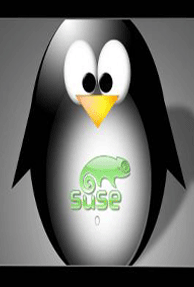SUSE Linux Enterprise 11 SP2 Released

Bangalore: SUSE, the original provider of the enterprise Linux distribution has announced the general availability of SUSE Linux Enterprise 11 Service Pack 2 (SP2). This company promises to provide industry’s most interoperable platform for mission-critical computing. The Service pack 2 enables enterprises to enhance performance, reliability and efficiency, while maintaining enterprise quality and application compatibility. The product helps businesses to deliver mission-critical IT services faster, more reliably, and more cost effectively, today and tomorrow as reported in Biztech.com
“In order to stay ahead of our competitors, we need to exploit every possible advantage - including IT advantages,” said Urs Frey from Services Informationstechnologie at Die Schweizerische Post. “During internal tests, we've been impressed with the overall performance, reliability and quality and are looking forward to moving our production workloads onto SUSE Linux Enterprise 11 Service Pack 2.”
SUSE has 20 years of experience supporting global enterprises with complex systems. More than 13,000 customers worldwide, representing every type of business, rely on SUSE to deliver IT services reliably, securely and cost effectively. This latest service pack is a result of a new forward-looking development approach that leverages mature community Linux kernel development processes. By combining modern Linux kernels, consistent libraries and interfaces with a unique, forward-porting approach, SUSE provides customers faster access to open source innovation, while maintaining enterprise quality and application compatibility.
“Historically, Linux vendors delivered enterprise quality and kernel stability by standardising on a given kernel release, and back-porting upstream enhancements to that kernel over time. We are starting to see the industry move away from this approach,” said Al Gillen, program vice president, System Software, at IDC. “SUSE's approach leverages the growing maturity of the upstream Linux kernel development processes and allows the company to apply its innovation where it makes the best business sense, while maintaining a product that offers the long term application environment stability that enterprise customers demand,” said Gillen.
